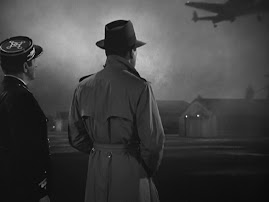UNIVERSAL TORAH: BO
By Rabbi Avraham Greenbaum
Torah Reading: BO Exodus 10:1-13:16Haftara: Jeremiah 46:13-28
G-D ALWAYS HAS THE UPPER HAND
"Who then is able to stand before me?
Who has given Me anything beforehand, that I should repay him?
Whatever is under the whole heaven is Mine" (Job 41:2-3).
In the story of the Exodus, it is obvious who is the villain: obstinate Pharaoh, who will not bow to G-d until his very first-born and those of all his people are smitten. But who is the hero of the story? Can we say it is the Children of Israel? They certainly responded with faith when they heard the good news of their imminent deliverance (Ex. 4:31). They were willing to hear, listen and obey. "And the Children of Israel went and did as HaShem commanded Moses and Aaron, so they did" (Ex. 12:28). But otherwise, the role of the Children of Israel's was mainly passive in the unfolding drama in which Pharaoh's power over them was broken. They were the slaves, and they were released: not the most heroic of roles. They were almost devoid of all merits. The very memory of it should induce humility.
Then is Moses the "hero"? It is true that "also the man Moses was very great in the land of Egypt in the eyes of Pharaoh's servants and in the eyes of the people" (Ex. 11:3).
With the unflinching courage that his true prophecy conferred upon him, Moses, with his brother Aaron, played the central role in heralding the awesome and terrible signs through which the redemption came about. Yet it was not Moses who "liberated" or "saved" the Children of Israel. Moses was the greatest of all prophets, but he was still "the MAN Moses". Moses could say that the first-born would be smitten "ABOUT Midnight" (Ex. 11:4). But G-d alone could make the plague actually happen "AT midnight" (Ex. 12:29) -- at the exact moment.
G-d alone is the "hero" of the Exodus. "And I shall pass through [Targum = I shall be revealed in] the land of Egypt on this night" (Ex. 12:12) -- "I and not an Angel; I and not a Saraf; I and not a messenger." (from the Seder Night Haggadah, commenting on "And I shall pass through / be revealed").
The whole purpose of the Exodus was not to glorify a man or a nation, but to reveal G-d's absolute power over all creation. As Moses reminded the people forty years later, at the end of his ministry:
"For you are a holy nation to HaShem your G-d; HaShem your G-d chose you to be His treasured nation out of all the nations that are on the face of the earth. Not because you were more numerous than all the nations did HaShem desire you and choose you, for you are the smallest of all the nations. But because of HaShem's love for you and through His guarding of the oath that He swore to your fathers, HaShem took you out with a mighty hand and redeemed you from the house of slaves, from the hand of Pharaoh king of Egypt. Know that HaShem, your G-d -- He is the G-d, the Power, who is faithful and guards the covenant and shows kindness to those who love him and who guard His commandments for a thousand generations. And He pays those who hate him in their face, to destroy them; He shall not delay to the one who hates him, He will repay him to his face." (Deuteronomy 7:6-10).
* * *
THE REAL START OF THE TORAH
In Rashi's opening comment on the Torah (Gen. 1:1), he indicates that the real "beginning" of the Torah is in our present parshah of BO. "Rabbi Yitzchak said: the Torah should have started from 'This month will be for you the head of the months' (Ex. 12:2) since this is the first commandment that the Children of Israel were commanded." [See Rashi on Gen. 1:1, where he explains that the account of the Creation and the ensuing history recounted in Genesis are proof of the Children of Israel's G-d-given right to the Land of Israel.]
In other words, the "real" start of the Torah is when we read it first and foremost as a message about our obligations rather than one about our rights. Having been passively freed by G-d from servitude to man, we have obligations to the "hero", the only true Savior. If anyone lays claim to any lien on us, G-d's lien always has priority.
The first mitzvah of the Torah to the Children of Israel is that of "sanctifying the month" (KIDDUSH HACHODESH). This involves counting the months of the year from Nissan, the month of redemption, and, when the Sanhedrin sits in the Land of Israel, taking testimony from witnesses who have sighted the new moon in order to declare the start of the new month. Marking time from the point at which the moon, having briefly disappeared from sight, begins to wax and grow, is a sign of constant regeneration and vitality. The sign of the crescent was taken over by Islam, but the unique power of the crescent of the new moon as a symbol of renewal is known only to the Children of Israel, who observe the commandment of Sanctifying the Month. Alone among the nations, the Children of Israel possess the Secret of IBBUR (literally "pregnancy"). This involves the method of reconciling the Lunar year (of 354 days) with the Solar year (of 365 days) through the insertion of an extra month in certain "leap" years (= SHANAH ME-UBERET, a "pregnant" year of 13 instead of only 12 months). It is to this and the related astronomical and mystical wisdom of the Children of Israel that Moses alluded when he said: "For this is your wisdom and your understanding in the eyes of the nations" (Deut. 4:6, see Shabbos 75a).
The month of Nissan is governed by the astrological sign of Aries (T'LEH, the Ram), called the "head" or first of the constellations, since this is when the annual "regeneration" of the world begins in springtime. The Egyptians, who were masters of astronomy and astrology, worshipped sheep (see Gen. 46:34 and Rashi there). The commandment to the Children of Israel to take young sheep, ritually slaughter and eat them, was indicative of the destruction of the Egyptian religion through the Exodus and its replacement with a completely new and revolutionary way of coming to know G-d.
This commandment applied to those who went out of Egypt (PESACH MITZRAYIM) and it applied in later generations, when festival pilgrims would bring the Paschal lamb sacrifice to the Holy Temple (PESACH DOROS, "Pesach offering of the generations"). After its slaughter and the offering of its blood and fat on the altar on the afternoon of 14th Nissan, the lamb would be taken by the pilgrims to their lodgings in Jerusalem, roasted and ceremonially eaten with Matzah (unleavened bread) and bitter herbs as the centerpiece of the Seder Night commemorating the Exodus. Our present parshah of BO contains the laws of both PESACH MITZRAYIM and PESACH DOROS (Ex. Ch. 12 verses 3-28 and 43-49).
"And you shall say, This is the PESACH sacrifice for HaShem, who jumped over (=PASACH) the houses of the Children of Israel in Egypt when He smote the Egyptians and He saved our houses" (Ex. 12:27). Rashi (on Ex. 12:23) states that the Hebrew root PASACH in this passage carries the twin connotations of "had mercy" (as translated in the Targum here) and "leapt over". In other words, G-d's mercy for the Children of Israel was expressed in the fact that He "leapt over" and spared their houses while striking at the Egyptians.
The Torah contains numerous negative prohibitions (such as the incest prohibitions) whose infringement carries the penalty of KARES (physical and spiritual excision). However, there are only two positive commandments in the entire Torah whose willful neglect carries this penalty. These are the commandment of circumcision of all males and that of participating in the Pesach sacrifice (in Temple times). The two commandments are interrelated, for males may eat the Pesach sacrifice only if they are circumcised.
Fulfillment of the two commandments of circumcision and the Pesach sacrifice is integral to membership of the Community of Souls constituted by the Children of Israel, while for the penalty for infringing them is KARES, excision from that community.
Significantly, the laws of the Pesach lamb require that it be eaten in the company of a Chavurah, a group of friends and fellows, in a house. The significance of the house and the use of "domestic" functions such as communal eating as a focus for religious devotion has been discussed in relation to the story of Abraham, Isaac and Jacob "the House-builder" (see VAYEITZEI).
An indication of the centrality of the Pesach sacrifice in the true Torah tradition may be seen in the fact that the image of the Paschal lamb (like many other aspects of the Torah) was taken over and transmuted by the early developers of Christianity, as if their savior, who by all accounts was executed on 14th Nissan (see Sanhedrin 43a uncensored version), somehow became the paschal lamb. They introduced a new rite of "communion" in which the consumption of the sacrificial lamb was replaced with the eating of the founder's transubstantiated "flesh" (wafers of "bread" = Matzah) and the drinking of his "blood" (wine = "cup of redemption"). This rite could be performed in places of worship anywhere and was, within a generation, opened up to anyone, including the uncircumcised. The purpose was to try to displace the Children of Israel, G-d's true circumcised, from their role in creation, and to displace the Temple in Jerusalem and its sacrificial system, as laid down in the Torah, from their central position in the atonement of man's sins.
None of this can change what is written in the Torah about how man draws close to G-d through sacrifice (see Leviticus 1:1). For "G-d is not a man that He should lie or the son of man that He should change His mind. He spoke -- will He not do it? He pronounced -- will He not fulfill it?" (Numbers 23:19). "For I am G-d, I have not changed." (Malachi 3:6). Long before Christianity was established, G-d already told us through His true prophets that in the end of days, "Many peoples will go and they will say, Go and let us ascend to the Mountain of G-d, to the House of the G-d of Jacob, and He will teach us of His ways and we will go in His paths, for the Torah will go forth from Zion and the word of HaShem from Jerusalem" (Isaiah 2:3).
* * *
AND IT SHALL BE FOR A SIGN.
The lessons of the Torah are not to remain in the mind. "And you shall know (VEYADAATA) today and bring it DOWN TO YOUR HEART that HaShem is the G-d in the heavens above and on the earth below, there is none other" (Deut. 4:39). The Exodus was the greatest ever revelation in history so far of DAAS -- the "knowledge" that G-d governs this world. The institution of the religion founded upon this event is marked in our parshah with the giving of the first practical commandments through which we keep this knowledge alive from generation to generation and make it palpable and literally tangible in our lives.
The highly tangible act of eating the Pesach sacrifice (or celebrating the Seder night) from year to year keeps the memory of the Exodus alive, stimulating questions from little children, giving the adults the opportunity to hand down the tradition and grow themselves in the process. A farmer's cow or sheep gives birth to a first-born, which he presents to the priest in memory of the saving of the Israelite first-born. A first-born boy is born and must be "redeemed" from the priest. First thing in the day, the Israelite takes leather straps, symbols of bondage, and uses them to bind himself to G-d and literally bind G-d's words and wisdom to his very body, with the Tefilin. "And it shall be for a sign on your hand and for frontlets between your eyes that with strength of hand HaShem brought us out of Egypt" (Ex. 13:16, closing words of the parshah.) Through practical acts of devotion, we bring the knowledge of G-d into our hearts. This is our part in displacing Pharaoh.
Shabbat Shalom!
Avraham Yehoshua Greenbaum
--AZAMRA INSTITUTEPO
Box 50037 Jerusalem 91500 Israel
Website:
www.azamra.org

























